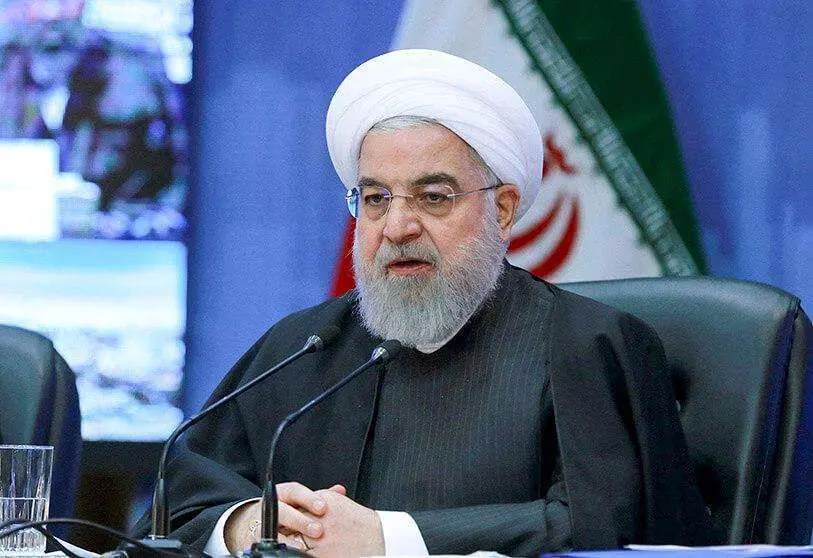Iran militarily secures the border with Azerbaijan and Armenia

The Islamic Republic of Iran is suffering collateral damage from the fighting in Nagorno-Karabakh. For this reason, on Friday the Iranian army announced the deployment of more armoured units in the northwest region bordering Azerbaijan and Armenia with the aim of protecting Iranian territory.
The Iranian security forces fear that troops from both warring sides will cross the border beyond the limits. For a month now they have been denouncing the falling of stray rockets within the region.
The clashes between Azerbaijan and Armenia have resulted in several stray rockets and missiles falling on villages and areas adjacent to the border between the two countries and Iran, the local Iranian news agency Mehr reported. In these attacks at the beginning of October several houses were damaged and a six-year-old boy was injured.
During the last weeks, Iran has been sending troops to the border with the intention to protect it in case the opposing armies of Armenia and Azerbaijan go too far. "No power can try to change the geography of the region, we will not tolerate it," Heidarí said on state television.
The commander of the Earth Force, Brigadier General Kiumars Heidarí, said today that the army will do "everything possible to maintain security and peace in the border areas". On this occasion, the military troops have been sent from the Army headquarters located in the city of Urmia.
This border region was visited yesterday by the commander-in-chief of the Iranian Revolutionary Guard, Hosein Salamí, who warned that the armed forces will make a "decisive response to any act of aggression".

The commander, referring to the Nagorno-Karabakh conflict, took the opportunity to urge both sides to respect international borders and solve their problems through dialogue. "Our red line is to ensure the security, peace and stability of the population," he added.
The war in Nagorno-Karabakh, which broke out on 26 September, is now concentrated in the regional capital Stepanakert, where three civilians were killed yesterday. The Azeri army is also concentrating its offensive on the second most important city in the Artsaj enclave, Shushi.
"Azerbaijan keeps under intense artillery fire Stepanakert and Shushi. Several houses were burned in Shushi. There is destruction in Stepanakert. According to preliminary data, three civilians were killed," Artsakh ombudsman Artak Beglarian wrote on Twitter.
According to the Ministry of Defence of the self-proclaimed republic of Nagorno-Karabakh, the local army repelled numerous attacks by Azerbaijani forces on Shushi, which is located only about 15 kilometres south-west of Stepanakert.
Iran is attempting to mediate between the conflicting parties and has drawn up a peace initiative that was presented last week by the deputy foreign minister, Abbas Araqchí, on a trip to Baku, Moscow, Yerevan and Ankara.

But for the time being it seems that there will be no dialogue between Armenia and Azerbaijan. The president of Azerbaijan, Ilham Aliev, considers that it makes no sense at this time to sit down to negotiate with the Armenian prime minister, Nikol Pashinian.
In an interview granted to EFE by videoconference from Baku, the Azerbaijani head of state states that he has met with Pashidian, who has been in power since 2018, on many occasions, "but practically all the meetings were useless", says the president.
"It makes absolutely no sense. I have had many meetings with him in the past two years, but all were absolutely useless and meaningless, except for the first ones, in which he promised me that, if Azerbaijan gave him time after the so-called revolution, he would strengthen his political position in Armenia and work constructively to implement the basic principles" of the settlement of the conflict, Aliev said.
These principles, developed in Madrid in 2009 under the auspices of the Organization for Security and Cooperation in Europe (OSCE), establish, among other elements, the withdrawal of Armenian troops from the occupied territories.
The Madrid Accords were an attempt to enliven the resolution of the conflict by the Minsk Group, a body set up in 1992 to settle this territorial dispute. The co-chairmen of the Minsk Group are Russia, France and the United States. In addition, the group comprises Belarus, Germany, Italy, Sweden, Finland and Turkey, as well as Azerbaijan and Armenia.

During the meeting in 2009 three lines were proposed to ease tensions: first, the inhabitants of Artsaj could decide whether to be from Armenia or Azerbaijan. The second point urged the Armenian army to withdraw from the occupied region to the south-east of Nagorno-Karabakh. And finally, Azerbaijan would guarantee a humanitarian corridor for all those who wish to leave Artsaj for Armenia.
These talks were broken off as neither country was willing to give up the territory of Nagorno-Karabakh. But Aliev states that Pashtun did seem to have changed his mind at their first meetings. "This is what he told me in the first months of his leadership of Armenia. But a year later he has started saying completely different things," the Azerbaijani president said.
This is how both presidents have left the various disputes that may arise while the war is raging to their foreign ministers. Ministers Zohrab Mnatsakhanian (Armenia) and Jeihun Bayrámov (Azerbaijan) met in Geneva, Moscow and Washington. Since the conflict has been revived, they have attempted to agree several ceasefires which have not been respected by either side.
In the interview the Azerbaijani head of state since 2003 assures that he does not want war and will stop it immediately if Pashkin presents him with a specific timetable and declares the withdrawal of his troops from the part of the district of Agdam that is still under occupation.








